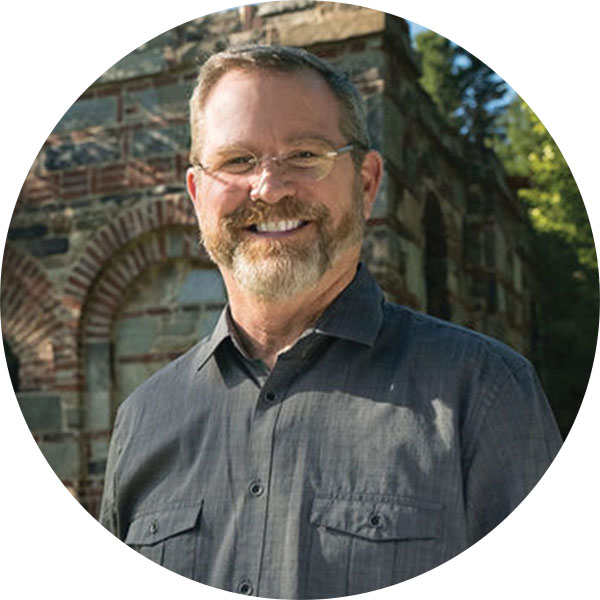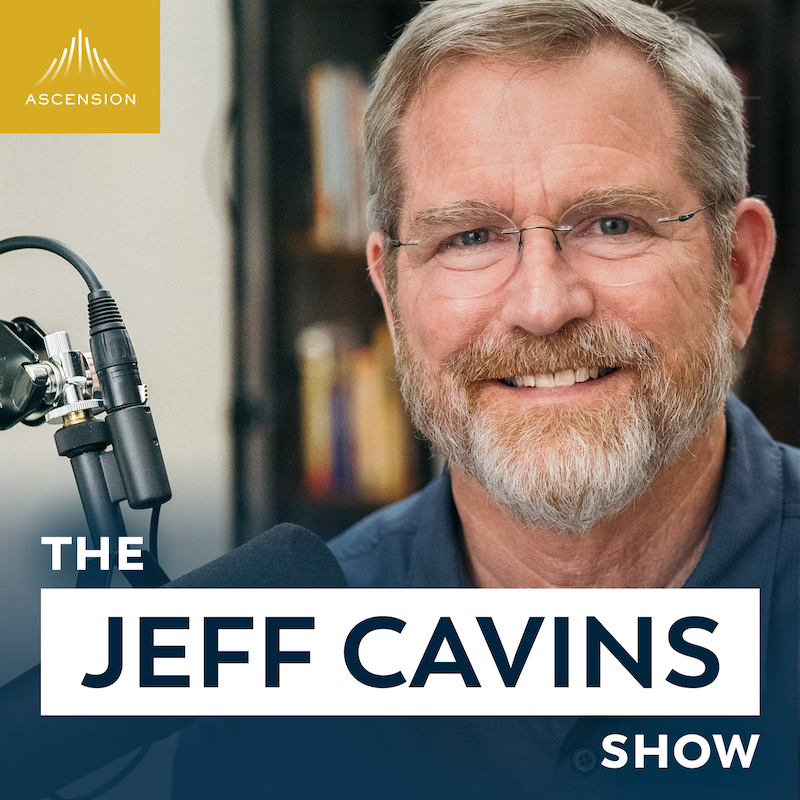Parents teach their children all sorts of things, but how primal is their role as educators? How do parents and educators work together? When it comes to faith and morality, the education of children is essential work. Jeff Cavins discusses the pivotal role parents hold. He encourages them to take their role seriously and do all they can at the service of their children’s education.
Snippet from the Show
The way we live and speak is the best testimony to our faith that we can offer our children.
Shownotes
“
Catechism of the Catholic Church, Paragraph 2223
Parents have the first responsibility for the education of their children.
Catechism of the Catholic Church, Paragraph 2226
Family catechesis precedes, accompanies, and enriches other forms of instruction in the faith. Parents have the mission of teaching their children to pray and to discover their vocation as children of God.
National Directory for Catechesis
“Parents are the most influential agents of catechesis for their children. They have a unique responsibility for the education of their children; they are the first educators or catechists. They catechize primarily by the witness of their Christian lives and by their love for the faith.”
Familiaris Consortio
Hence, parents must be acknowledged as the first and foremost educators of their children. Their role as educators is so decisive that scarcely anything can compensate for their failure in it.
The Predominant Themes on Parents and Educators
1. Primacy of parental role in education.
Parents “original, primary and inalienable right” to educate their children ranks as the most central theme in regard to parents and education, evident in 28 out of 33 documents (e.g., Pontifical Council for the Family, 1983, §5; see also John Paul II, 1981; Leo XIII, 1885, 1890/1941; United States Conference of Catholic Bishops \[USCCB], 1972).
2. Parents as witnesses in the world.
Nineteen of the examined Church documents (e.g., John Paul II, 1979; Pius XI, 1929/1930; Pontifical Council for Justice and Peace, 2004) mentioned the instructive power of parents in witnessing their Catholic faith to their families.
3. Continuing Parental Catechesis
A total of 11 Church documents underscored the need for outreach to parents and ongoing parental catechesis (e.g., USCCB, 1972, 1983, 2000). The USCCB (1999) succinctly stated, “An adult community whose faith is well-formed and lively will more effectively pass that faith on to the next generation” (§40). The call for ongoing parental catechesis is, therefore, a logical consequence of and complement to the primacy of parental role in education and parents as witnesses in the world.
4. Parent-School-Church Collaboration
Nineteen of the reviewed documents noted the theme of collaboration between parents, Catholic schools, and the wider Church (e.g., Congregation for Catholic Education, 1977, 1982). Merely sending one’s children to a Catholic school does not fulfill this “grave obligation” of education (Pius XI, 1929/1930, para. 34). As much as possible, parents should collaborate with the local Church community to secure the promise of Catholic education for their children and for future students. Similarly, the Church community—both on the universal and local level—must support Catholic schools and parents.
5. Parental Involvement
Sixteen of the documents note the importance of parental involvement with teachers, administrators, and school activities as part of the marital duty to serve as the primary educational stakeholders in child education (e.g., Congregation for Catholic Education, 1977, 1988; USCCB, 1990). Active parent participation in school functions, increased dialogue between parents and teachers, and the establishment and bolstering of parent organizations unite parents with the mission of Catholic schools. _The Code of Canon Law_ (Caparros et al., 1993) clarifies that this cooperation and collaboration are more than just highly desirable. They are canonical requirements. Canon 796 states, “it is incumbent upon parents to cooperate closely with the schoolteachers to whom they entrust their children to be educated.”
Moreover, “teachers are to collaborate closely with parents who are to be willingly heard” (canon 796). Thus, teachers and administrators should work in unison with parents in collaborative decision-making processes in order to strengthen Catholic education.
6. School Choice
The final theme, evident in 15 documents (e.g., John Paul II, 1981, 1994; USCCB, 2005), can be traced to the earliest Church document on education, where Pope Leo XIII (1885) highlighted the right of parents to choose Catholic schooling for their offspring.
“God in his deepest mystery is not a solitude, but a family, since he has in himself fatherhood, sonship, and the essence of the family, which is love.” (JPII 1979, A Pilgrimage of Faith, p. 86).
Resources
- Email us at thejeffcavinsshow@ascensionpress.com
- Text “jeffcavins” to 33-777 to subscribe and get added to Jeff’s shownotes email list
- New Podcast from Fr. Mark-Mary Ames, CFR: The Rosary in a Year
- Visit Jeff’s website at www.jeffcavins.com
- The Great Adventure Bible
- Listen to The Bible in a Year (with Fr. Mike Schmitz)
- Pilgrimages with Jeff
- Jeff’s Daily Gospel Reflections with Jonathan Roumie: www.hallow.com/jeffcavins
Ascension is pleased to offer our new and improved online bible study programs and sacramental preparation programs digitally to help you minister with flexibility. Go to ascensionpress.com to view all our offerings.

Meet Your Host: Jeff Cavins
Jeff Cavins is passionate about helping people understand Scripture and become disciples of Jesus Christ. Though he was born Catholic, Jeff went to Bible school and served as a protestant minister for twelve years before reverting to the Catholic Faith. Jeff then received his MA in Theology from Franciscan University of Steubenville. Since then, he has become a leading Catholic evangelist and author.
Jeff created The Bible Timeline learning system, which revolutionized Catholic Bible Study for millions of Catholics. Since its introduction, Jeff has developed The Great Adventure series of Bible studies to help people better understand Sacred Scripture and its meaning for their lives.




